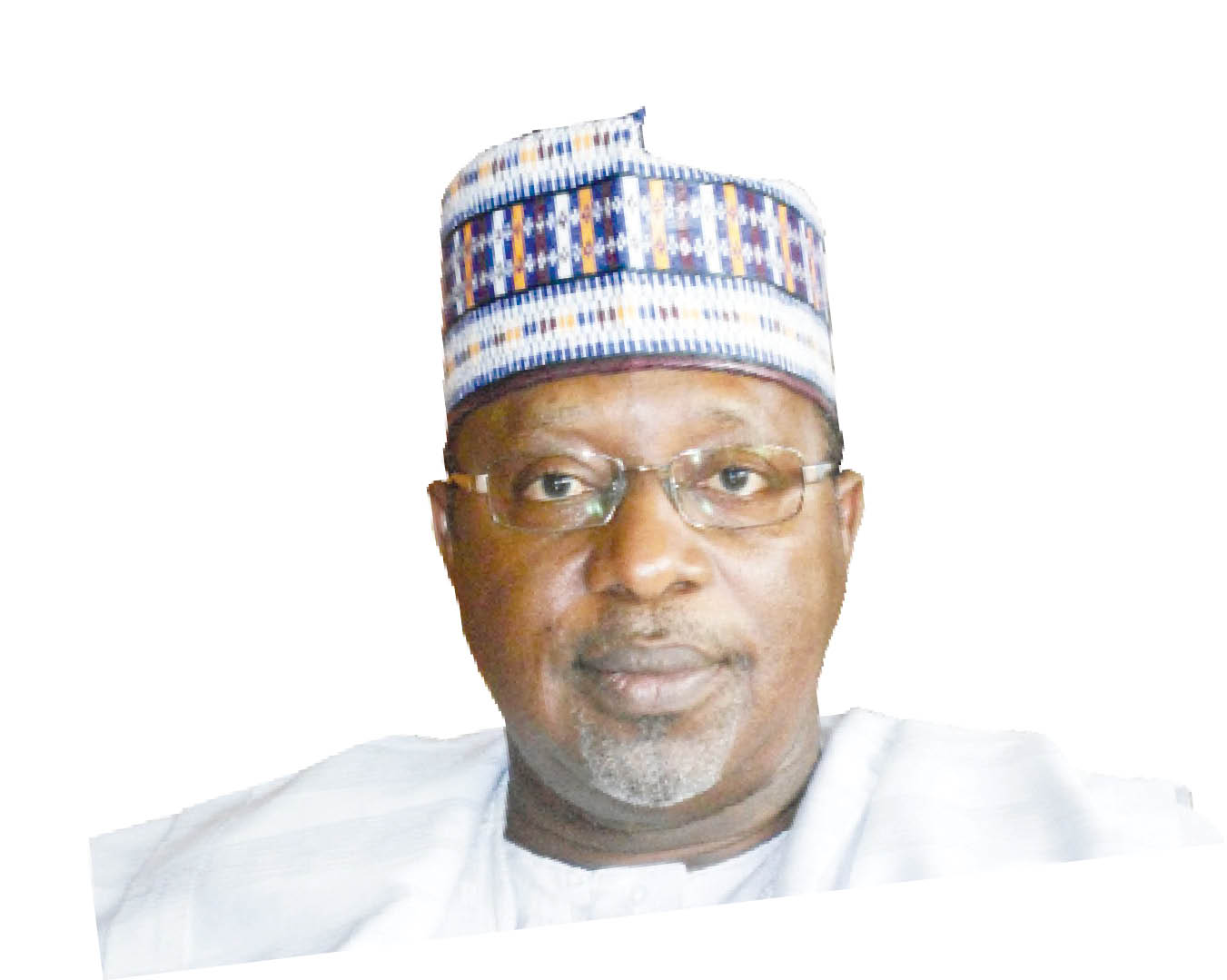The President of the Quantity Surveyors Registration Board of Nigeria (QRSBN), Alhaji Murtala Aliyu, in this interview, said the profession, though relatively new, has made great inroads into the construction industry. He also spoke on the impact of technology on the future of the profession and efforts at encouraging builders to embrace the green building concept. Excerpt:
Can you talk about the theme of this year’s annual general conference of the Quantity Surveyors Registration Board of Nigeria (QRSBN)?
The theme this year is ‘Shaping the Future of the Quantity Surveying Profession’. The issue is with the kind of challenges we have these days and I am talking about information technology and biotechnology revolutions.
There are quite a number of relationships that have to be changed or modified. First of all, the human demand is changing and the space is being defined by virtual relationships; workplace space is reducing, travel is reducing, so the need for hotels is reducing. Also, shops will be redundant very soon because people are buying things online so there will be the need for more warehouses and so on.
Number two, the ways and means of delivering projects have changed. Technology has changed, processes have changed, automation is taking over every skill. So, all aspects of our profession that has to do with a particular skill will have to be modified to be able to face the challenges.
Number three, the nature of the profession itself; if before you were concerned about measuring and costing and so on, now it is more about managing the costing. We still have areas where those who are living in primordial times will still require the old form of service but the world is not waiting; civilization is harmonizing and we have just one civilization; infotech civilization, biotech civilization.
What is happening in Germany, what is happening in Russia, what’s happening in South Africa, what’s happening across the globe are all the same in terms of human needs and relationships.
So, the quantity surveying profession needs to sit down and review itself and see that it is not only meeting these requirements but is able to project what the future will be and its relationship with other professions.
In the face of global climate crisis, there’s the need to imbibe the green building concept but the major problem is cost. As a cost and management professional how should builders, developers navigate the tightrope between construction cost and being responsible for the environment?
The initial challenge came with technology. Most technologies that are green-friendly are a bit expensive. But with a lot of research, we are overcoming that. Systems that are green, like solar energy, wind energy are becoming cheaper and more available by the day. And people are beginning to appreciate the use of renewable energy.
Initially, the cost was on the high side but a lot of research is going on to ensure that green buildings or constructions become cheaper and more available and I think that we are going to achieve that.
Building materials, cement, steel and aluminum contribute a lot of the carbon emissions to the environment. How can alternatives be gotten here in Nigeria?
Globally, a lot of things are going on but even here in Nigeria, there are institutions like the Nigerian Raw Materials Research and Exploration Agency (NRMEA), Nigerian Building and Road Research Institute (NBRRI), the Standard Organisation of Nigeria (SON) looking at all these. If you notice, we used to use asbestos but due to the toxicity of asbestos, we have discarded it.
QRSBN is collaborating with Ahmadu Bello University, Obafemi Awolowo University, Ife, for a start to see ways and means of relating in this respect to ensure that we achieve effective cost for green buildings.
So, we are doing our best to advise the designers and support the research institutions. But you will find out that our role in terms of reducing emissions is very low but our job is to tell the other professionals in the built environment that these are the alternatives and they can be chosen from.
At the Green Building Council of Nigeria, where you are a member, what are you doing to enlighten stakeholders, especially as the construction industry contributes 40 per cent of Greenhouse Gases (GHGs) to the environment on the need to act now?
I won’t accept that the construction industry contributes 40 per cent of GHGs because sometimes, these things are exaggerated. I will give you an example, to produce one kilogramme of beef, you need almost 15,000 litres of water. What happens is people sit down and project these figures.
The truth is that the construction sector contributes a lot to GHGs emissions and that is why we at the council are now looking at designing houses or properties that require less energy. If you notice, solar power is being used widely for street lighting. All these things are outcomes of our advice and discussions.
So there is going to be a lot of stakeholders’ engagements. We will advise clients to use solar energy and when they cut down trees to make furniture, we will advise them to replace them. When you are building a house put a lot of green. Even when you have skyscrapers, you make provision for plants.
Also, as I said earlier, we are going to collaborate with research institutions and tell them that look, this particular material emits a lot of carbon, can you seek alternatives. I can tell you that the issue of green infrastructure is so crucial because we are talking about humanity itself, not just the construction industry.
The moment the temperature moves like two per cent, and if we are not careful, we will get there, and the ice begins to melt and there is less ice that will reflect the sun’s rays, more ice will melt and then we will have an irreversible problem. So, everybody is conscious of that and in the construction industry we will try our best and we will keep advocating and engaging other stakeholders in the industry.
If you look at the constituents that form the GBCN, you will find out that there are architects, engineers, quantity surveyors and builders.
You talked about solar being part of the solution to the climate problem but some people have raised concerns about its sustainability in the sense that it only works in the daytime when the sun shines?
It depends on the capacity and the convertibility. Once captured, it can be converted into alternative current (AC) instead of direct current. And once it is AC it can be reserved. It can convert from the batteries back into direct current (DC) and then be put on the grid. It is being done in other countries.
Morocco and Algeria have solar farms that produce thousands of megawatts that they put on the grid. Some of the challenges we are having with the street lights are that it is either they are putting the inadequate capacity or they are using the old technology.
Do you think the Real Estate Development Regulatory Bill currently at the National Assembly is the key to solving the problems in the built environment?
No. It is not the key to solving the problems; it will reduce the problems. We have a housing gap and it will require a lot of interventions and developers need to be encouraged. But in encouraging them, you need to regulate them also.
One of the major problems we have is that everybody is a developer and there are no rules. You can just come, get a piece of land and put up a structure and then sell it. But when they have a regulatory framework in place, the real estate sector will contribute substantially to reducing the housing gap without really causing chaos in the industry.
What is the relationship between quantity surveyors and other professionals in the built environment; are they given their due recognition in the scheme of things?
Among all the professions in the built environment, quantity surveying is relatively new. It is less than 100 years as a structured profession. The degree courses in quantity surveying are not more than 60 years old. But you will find out that it has made substantial inroads into the industry. Now, we are trained as quantity surveyors to understand all the technologies in the construction industry, whether it is building, roads, dams and so on. At least, we appraise the projects, we cost them.
Before the emergence of the quantity surveying profession, other professionals did the costing. Like when the architect designs, the mason will come and put the structure and he will be the one telling people how much materials and labour will cost. But structuring the cost now became an issue and that was when it became the job of quantity surveyors.
So where we have a challenge is where others are refusing to relinquish that aspect of the work to the experts but we are getting over that because, with time, everybody is realizing the boundaries.
It is like in journalism and public relations. People cannot differentiate between the two but they are completely different. So these are some of the challenges that quantity surveyors face but we are overcoming them because clients are beginning to appreciate the role of each professional. It will take time before the matter is resolved but I think where we are heading to, in terms of advancement of the society, with the advent of infotech and biotech, every profession will have its role clearly spelt.
Also, things are going to merge, professions are going to converge. There used to be electronics and mechanical engineering but now they have what they call mechatronics. Most machine parts are becoming electronic, the same thing will happen in all professions.

 Join Daily Trust WhatsApp Community For Quick Access To News and Happenings Around You.
Join Daily Trust WhatsApp Community For Quick Access To News and Happenings Around You.


